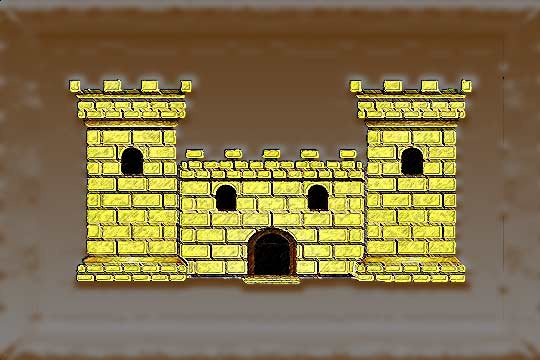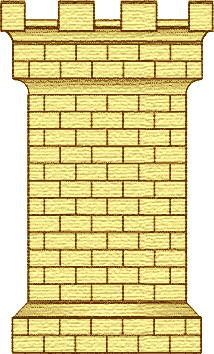Kalavryta, Kalavryta, Achaea,West Greece
Castle of Tremoulas
| Location: |
| On the peak of mount Tremoulas, 2.5km east of Kalavryta in northern Peloponnese |
| Region > Prefecture: |  |
| West Greece Achaea | |
| Municipality > Town: | |
| City of Kalavryta • Kalavryta | |
| Altitude: | |
|
Elevation ≈ 1370 m (Relative Height≈400 m) |
| Time of Construction | Origin | |
| late 13th cent. | FRANKISH |
|
| Castle Type | Condition | |
| Castle Ruins |
Few Remains
|
Few remains of a small Frankish castle at the top of mountain Tremoulas 2.5 km east of Kalavryta and very close to the castle of Kalavryta.
History
It is believed that the origin of the name is the family of La Tremoille also known as de Dramelay who were the barons of the neighboring barony of Chalandritsa. The main argument in favor of this view is that the Greek version of the Chronicle of Moreas translates the name of the baron Robert de La Tremoille to Roubertos Tremoulas.
There are various theories why the Dramelay’s should build this castle, so close to the castle of Kalavryta which was not a simple castle, but the seat of a barony that was not their own. According to one of them “Tremoulas” was the name of the mountain before the arrival of the Franks, and the castle was built there just to protect the castle of Kalavryta –which was at a lower hill– without any connection with the barons of Chalandritsa. The names were only a coincidence.
We believe that the most probable expalanation is this: It is known that the Byzantines of Mystras captured the castle of Kalavryta in 1264 (or in 1270). The Franks who were taken by surprise by the penetration of the Greeks deep into their territory, reacted by building this castle in order to contain the Byzantine forces and monitor their movements. Since the barony of Kalavryta was de facto extinct, the duty of building the castle and guarding the location was assigned to the people of the adjacent barony: the Dramelay’s aka the Tremoulas! So this castle must have been rather a watchtower, not the seat of a local lord and perhaps that is why it i is not mentioned by medieval sources.
Structure, Fortification & Buildings
The place is covered by a forest of high firs and this is one of the reasons that it is not easy to be found. Its walls are barely, and partly, visible, covered by the vegetation and soil. Their maximum height is under 1m.
The perimeter of the fortification is about 200m.
At the highest point, there is a spot with an increased density of rubble. Maybe here stood once the keep of the castle.
| First entry in Kastrologos: | December 2019 |
Sources
- Photos and info by Sakis Lemonakis and his blog ΑΜΦΙΤΡΕΙΔΗΣ
- Konstantinos Kourelis, “MONUMENTS OF RURAL ARCHAEOLOGY MEDIEVAL SETTLEMENTS ΙΝ ΤΗΕ NORTHWESTERN PELOPONNESE”, Presented to the Faculties of the University of Pennsylvania in Partial Fulfillment of the Requirements for the Degree of Doctor of Philosophy, 2003, page 278-79
- Ιωάννης Θ. Σφηκόπουλος, Τα µεσαιωνικά κάστρα του Μορηά , Athens,1987, page 201-2
- Antoine Bon, 1969, La Morée franque. Recherches historiques, topographiques et archéologiques sur la principauté d'Achaïe (1205-1430), Editions de Boccard, pp. 107, 108
|
|
| Access |
|---|
| Approach to the monument: |
| From Kalavryta take the road to Ano Lousoi. At the 4th km take the dirt road to the left. After 1.5km leave the car and continue for 20min on foot. |
| Entrance: |
| Free access |














